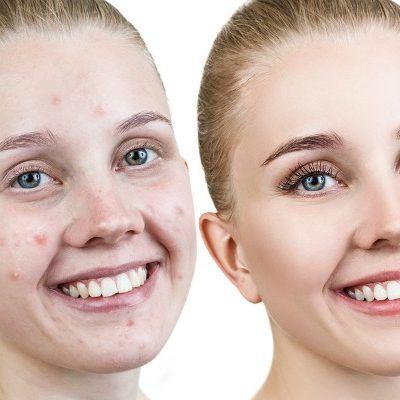There is a growing body of evidence linking diet to skin health, particularly acne. While acne is a multifactorial condition influenced by hormones, genetics, stress, and skincare habits, diet plays a vital and often underestimated role. Consuming certain types of foods can trigger or exacerbate acne, while others may help keep skin clearer and more balanced. Understanding how what you eat impacts your skin can empower you to make choices that support a healthier complexion. For those dealing with persistent breakouts, professional acne treatment in Islamabad offers clinical support tailored to your skin’s needs alongside lifestyle recommendations, including dietary guidance.
The Gut-Skin Connection
One of the primary reasons diet affects acne is due to the gut-skin axis—a bidirectional communication system between the digestive system and the skin. A healthy gut supports immune balance and reduces inflammation, both crucial factors in managing acne. Poor digestion, an imbalance of gut bacteria, or a diet high in processed foods can contribute to systemic inflammation and exacerbate skin conditions.
High-Glycemic Foods and Acne
High-glycemic index (GI) foods, such as white bread, sugary snacks, pasta, and soft drinks, cause rapid spikes in blood sugar levels. These spikes lead to a rise in insulin and insulin-like growth factor 1 (IGF-1), hormones that increase sebum production and promote skin cell proliferation—both key contributors to acne formation.
Several studies have found a clear link between high-GI diets and acne severity. Individuals who adopt low-GI diets rich in whole grains, vegetables, and legumes often report clearer skin and fewer breakouts.
Dairy Products and Hormonal Imbalance
Dairy, particularly skim milk, has been associated with acne in multiple clinical studies. The hormones naturally present in milk (even organic or hormone-free varieties) can interfere with the body’s own hormonal balance, stimulating oil glands and increasing inflammation. Moreover, whey and casein proteins in dairy products may stimulate IGF-1 production, aggravating acne.
It’s important to note that not everyone reacts the same way to dairy. Some may find they break out after consuming it, while others see no impact. Elimination diets guided by a dermatologist or nutritionist can help determine your individual triggers.
Omega-3 Fatty Acids for Anti-Inflammatory Support
Omega-3 fatty acids, found in fatty fish (like salmon and sardines), flaxseeds, chia seeds, and walnuts, have strong anti-inflammatory properties. They help regulate the body’s inflammatory response, potentially reducing acne flare-ups. Omega-3s can also lower levels of IGF-1 and balance sebum production, further contributing to clearer skin.
Increasing your intake of omega-3-rich foods or using high-quality supplements may offer benefits, especially for those with inflammatory acne.
Antioxidant-Rich Foods for Skin Repair
Antioxidants such as vitamin C, E, zinc, and selenium help protect the skin from oxidative stress and support repair and regeneration. Berries, green leafy vegetables, citrus fruits, seeds, and nuts are excellent sources of these nutrients. Zinc, in particular, plays a direct role in acne management due to its anti-inflammatory and antibacterial properties.
A diet that includes a variety of colorful fruits and vegetables can significantly improve skin resilience and reduce the frequency of breakouts.
Hydration and Skin Clarity
While water alone doesn’t cure acne, staying well-hydrated supports overall skin function. Adequate hydration helps maintain skin elasticity, flush out toxins, and prevent excessive dryness or oiliness, which can lead to clogged pores. Replacing sugary beverages with water or herbal teas is also a step toward better dietary habits that support skin clarity.
Probiotics and Fermented Foods
A healthy gut microbiome is essential for maintaining balanced skin. Probiotics found in fermented foods such as yogurt, kefir, kimchi, sauerkraut, and kombucha help regulate digestion, strengthen the immune system, and reduce inflammation. Probiotics can restore microbial balance in the gut, indirectly benefiting the skin by calming systemic inflammation and potentially lowering acne severity.
Common Acne-Triggering Foods to Watch
While every person’s skin responds differently, some foods have been frequently reported to trigger breakouts:
-
Refined carbohydrates: White bread, cakes, cookies, chips
-
Sugary drinks: Sodas, sweetened teas, energy drinks
-
Dairy products: Especially skim milk and whey protein
-
Fast food: Greasy, processed meals low in nutrients
-
Excessive chocolate: Especially milk chocolate high in sugar and dairy
Tracking your meals and identifying patterns can help pinpoint dietary culprits.
Balancing Blood Sugar for Healthy Skin
Stable blood sugar levels contribute to hormonal balance, which is crucial for managing acne. Diets that include high-quality proteins, fiber-rich vegetables, and healthy fats help prevent sudden insulin spikes. Eating regular meals and avoiding excess sugar intake can lead to more stable hormone levels, less inflammation, and a noticeable improvement in skin health.
Diet Isn’t Everything—but It Matters
It’s important to understand that while diet can significantly influence acne, it’s not the sole factor. Skincare, genetics, hormone fluctuations, stress levels, and environmental conditions also play key roles. That said, combining a balanced diet with a consistent skincare routine and professional dermatological care can deliver excellent results over time.
Professional Support for Clearer Skin
When dietary changes alone aren’t enough to control acne, it’s essential to seek expert care. Dermatologists can identify underlying causes and recommend treatments such as topical retinoids, oral medications, chemical peels, or advanced laser therapies. Diet and lifestyle guidance is often part of a holistic treatment approach.
If you’ve tried over-the-counter products or made dietary changes without improvement, it might be time to consult a professional. Combining clinical treatments with dietary adjustments ensures a well-rounded strategy for healthy, clear skin.
If you are dealing with persistent acne and want a more effective, science-backed solution, the experts at SKN Cosmetics clinic are here to help. Their advanced, individualized acne treatment in Islamabad addresses the root causes of acne while incorporating dietary and lifestyle support for long-lasting results.




